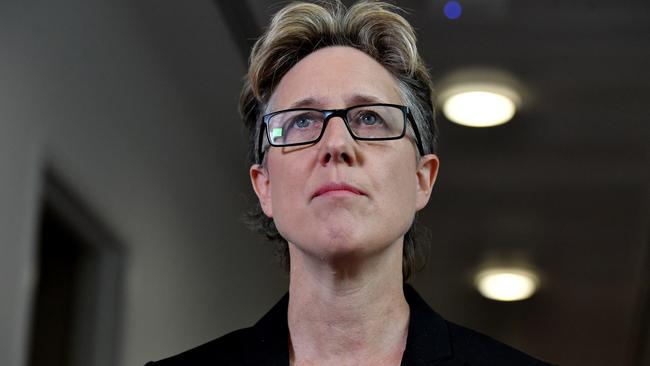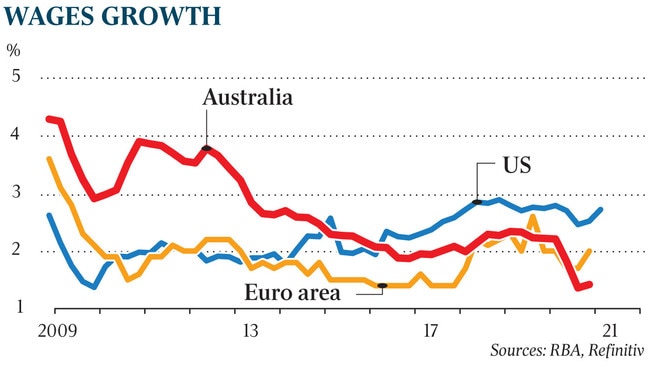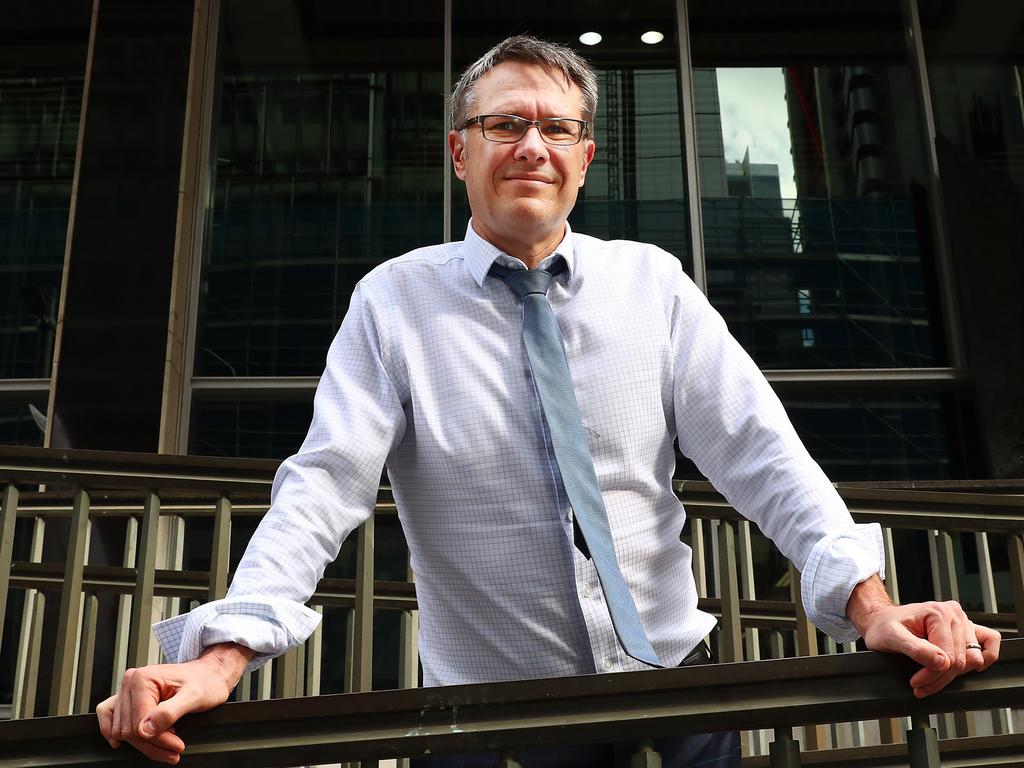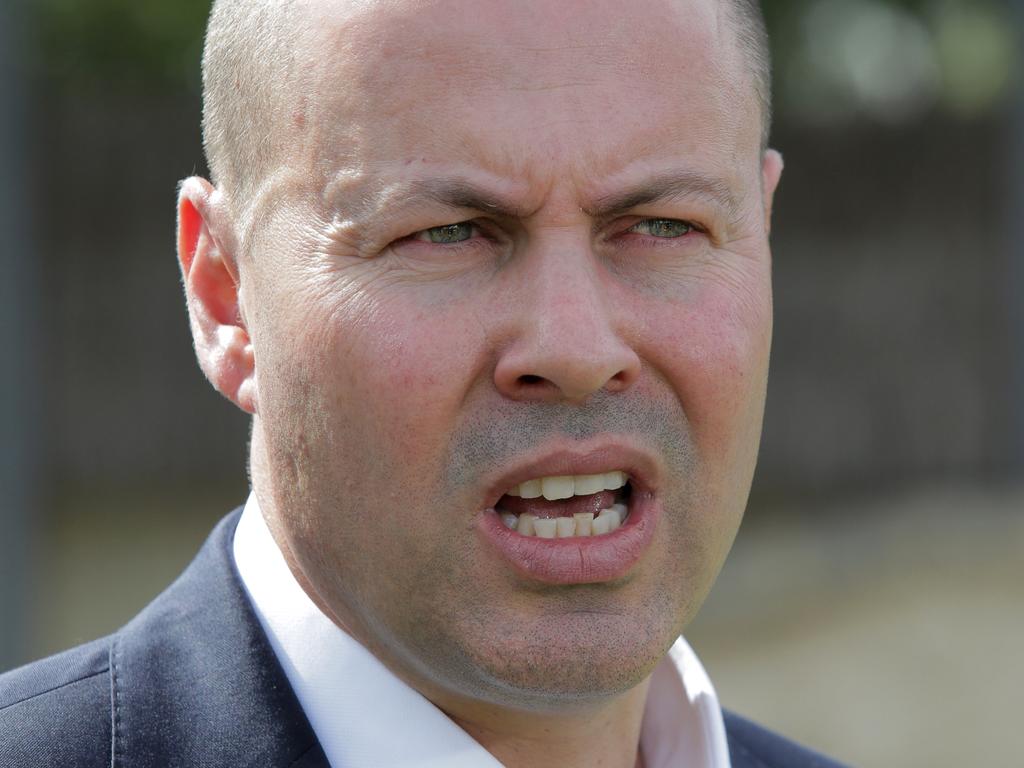ACTU leads push for pent-up pay hikes after rebound
Frustrated workers will have a ‘strong appetite for wage rises’ if the economy avoids more lockdowns, Sally McManus says.

ACTU secretary Sally McManus has put employers on notice that unions will make a concerted push for pay rises if the improving economy avoids more lockdowns, declaring frustrated workers would have a “strong appetite for wage increases”.
Ahead of next week’s federal budget, Ms McManus said workers had accepted the need for pay freezes in 2020 but there would be “a lot of pent-up demand for wages increases come the end of the year”.
“If it’s clear that the recovery is one that people might be able to rely on, or at least the employers continue to do well, I think people are going to start saying, ‘Well, 2020 we took a big hit, 2021 we have been asked to take pay freezes’ — people won’t accept an ongoing situation of wage suppression where they can see that employers and the big companies of Australia are doing fine,” she told The Australian.
“There will be an appetite to address that. All of this is reading tea leaves and what the tea leaves are today could change tomorrow, depending on what happens with the pandemic, but if there aren’t outbreaks and shutdowns, I absolutely think there will be a strong appetite for wage increases.”
The government says the budget will forecast a rebound in employment, with JobSeeker payments at June 30 to be $4.5bn lower than forecast in the mid-year economic outlook. In another sign of recovery from the COVID-19 recession, analysis of ASIC data by The Australian shows new company registrations in the year to April are running at more than 25 per cent above the seven-year average.
In a speech on Thursday, Reserve Bank deputy governor Guy Debelle said while “outcomes in the Australian economy have significantly exceeded even the optimistic expectations in terms of economic activity, that is not the case on the nominal side of the economy in terms of wages and inflation”.

“While the Australian economy has experienced better employment outcomes than most other countries, wages growth in Australia has been noticeably weaker than in many comparable economies, most notably the US,” he said.
Last week, Josh Frydenberg said unemployment would have to fall below 5 per cent before the government began the task of fiscal repair.
RBA governor Philip Lowe has also signalled that interest rates will not rise until 2024 when unemployment reaches a low enough level to trigger wages growth.
Ms McManus said 60 per cent of the jobs created since the start of the recovery had been casual, and the expansion in the number of workers doing multiple jobs was compounding the impact of stagnant household incomes, the decline in traditional full-time permanent employment and a shift towards insecure work arrangements.
“It’s a casualised recovery and I think that’s building the economy on sand because there’s a nexus between wages growth and how secure jobs are. We have just built an extra layer of job insecurity out of the recovery and the government’s entrenched that by saying it‘s OK for employers to give workers a contract … telling them they are casuals.”
She said workers were not entirely confident about the future, given the state of the rollout.
“That’s going to be hanging over bargaining tables but assuming that can get its skates back on, there is going to be a lot of pent-up demand for wages increases come the end of the year.
“A whole lot of workers took wage freezes last year, a lot of people took pay cuts, a lot lost their jobs and even though that was terrible, people accepted it to a degree because we could see what was happening and it appeared to be, or either was, out of the control of the employer.
“Now that’s changed. As much as we don’t know what’s going to happen … if profits continue to recover and domestic demand doesn’t start to flatline … you are going to see a lot of built-up frustration about wage freezes.”
She said many private sector companies were taking signals from federal and state governments freezing public sector wages. “They drive each other and that’s making bargaining extremely hard because where it’s a blanket decision by governments … there’s a big push in the private sector for the same thing.
“When you see the figures that demonstrate what’s been happening with company profits, they’ve bounced back very well but companies give reasons for not giving workers pay rises.”
She said governments and employers could not have it both ways. “They can’t on the one hand say ‘The economy’s bouncing back, it’s all fine’ and on the other say to workers ‘You should not get pay rises’. All we’re seeing then is a shift in the country’s wealth to the top end of town.”
Ms McManus said employer arguments that pay rises were unacceptable because of ongoing economic uncertainty and the impact of the pandemic would be put up with only “for so long”.
“They certainly were prepared to put up with it in 2020, and I think working people feel as though we’re the ones who took the hits last year and we have shown a lot of good will,” she said.
“Working people putting their shoulder to the wheel. It’s been the essential workers. It’s been that everyone said ‘Thank you very much for everything that you have done’. Not only will that wear thin but I don’t think people will accept ongoing wage suppression in this country.”
Industrial action was at record lows, she said. “It always takes some more strongly unionised parts of the economy to break through. Why is it that essential workers like nurses and aged-care workers don’t get fair pay rises after everything that has happened?”
In a submission to a Senate select committee, the ACTU is calling for a national plan to halve the number of insecure jobs by 2030.








To join the conversation, please log in. Don't have an account? Register
Join the conversation, you are commenting as Logout